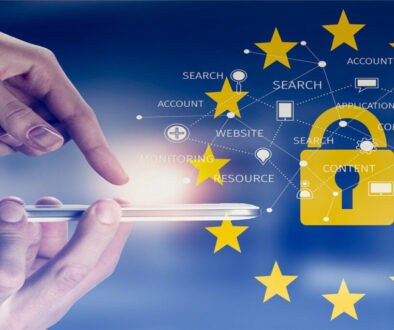Why Data Protection Day Matters
Data Protection Day, also known as Data Privacy Day, is an annual event that aims to raise awareness about the importance of data protection in our digital world. It serves as a reminder for individuals and organizations to be proactive in safeguarding personal data and promoting data protection best practices.
Data Protection Day was first celebrated on January 28, 2007. It was initiated by the Council of Europe as a response to growing concerns about privacy and data protection. The date marks the anniversary of the signing of Convention 108, the first legally binding international treaty on data protection. Since then, Data Protection Day has gained global recognition and is celebrated annually to raise awareness and promote best practices for protecting personal data.
As our lives become increasingly digitized, the importance of data privacy and protection cannot be overstated. Personal data is being collected, stored, and shared on a massive scale, making individuals susceptible to identity theft, fraud, and other malicious activities. Safeguarding personal information is crucial for maintaining trust, protecting individuals’ rights, and ensuring the integrity of digital infrastructure.
The Rise of Digital Data and Privacy Concerns
The emergence of digital technology has resulted in a significant increase in the gathering of data. This has granted companies the ability to obtain copious amounts of personal data, resulting in worries regarding the protection of privacy. Common worries include unauthorized access, data breaches, and the potential misuse of personal data. These concerns highlight the need for robust data protection measures to ensure the security and privacy of individuals’ information.
Expansion of digital data collection
The rapid advancement of digital technology has led to a significant expansion of data collection and utilization in various sectors. With the increasing availability of devices connected to the internet, such as smartphones, smart homes, and wearable devices, there has been a massive increase in the amount of data being generated on a daily basis. It resulted in companies now having access to vast amounts of personal information, ranging from browsing history to social media interactions.
This data collection has brought about both opportunities and challenges. On one hand, the abundance of data has allowed businesses and organizations to gain valuable insights into consumer behaviors, preferences, and patterns. This has enabled them to tailor their products and services to meet the specific needs of their target audience, resulting in improved customer satisfaction and increased sales. On the other hand, the extensive collection of personal data has raised concerns about privacy and security. As more and more information is being gathered and stored, individuals are becoming increasingly worried about how their data is being used and protected. Instances of data breaches and unauthorized access to personal information have further amplified these concerns.
The expansion of data collection has also spurred the development of new technologies and methods for data analysis. Machine learning and artificial intelligence (AI) algorithms are increasingly being utilized to make sense of vast amounts of data and extract meaningful insights. These technologies have the potential to revolutionize decision-making processes across industries and drive innovation.
As technology continues to advance, it will be crucial to find a balance between utilizing data for positive purposes and ensuring the protection of individuals’ privacy rights. However, this increased collection of digital data raises concerns about privacy and the need for robust data protection measures.
Common privacy concerns among consumers and businesses
Both consumers and business now are concerned about data protection:
- Consumers worry about the unauthorized access and misuse of their personal information by companies.
- They are concerned about their online activities being tracked and monitored without their consent or even knowledge.
- Businesses are also concerned about protecting their customers’ data to maintain trust and avoid legal consequences.
- Businesses is worried about data breaches that can lead to financial loss, reputational damage, and legal liabilities.
The Purpose of Data Protection Day
Aims to raise awareness about data protection rights and practices
Data Protection Day aims to raise awareness among individuals and organizations about their rights and best practices in data protection. It emphasizes the importance of securing personal information and encourages proactive measures such as implementing strong privacy settings, using encryption, and being mindful of data sharing.
Encourages individuals to take charge of their personal information
Data Protection Day emphasizes the importance of individuals taking control of their personal information. It encourages them to be proactive in protecting their data and making informed choices about how it is collected, used, and shared. By understanding their rights and actively managing their privacy settings, individuals can play an active role in safeguarding their personal information from unauthorized access and misuse.
Promotes data protection best practices among organizations
Data Protection Day plays a crucial role in promoting data protection best practices among organizations. It encourages businesses to implement robust security measures, adopt privacy-by-design principles, and educate employees on data protection protocols. This approach helps organizations mitigate risks, build trust with customers, and comply with data protection regulations.
Best Practices for Data Protection
Tips for individuals to protect their personal information
- Regularly update passwords and use strong, unique passwords for different accounts.
- Enable two-factor authentication whenever possible to add an extra layer of security.
- Be cautious about sharing personal information online, especially on social media platforms.
- Regularly review privacy settings on social media accounts and adjust them to limit the visibility of personal information.
- Be mindful of phishing scams and avoid clicking on suspicious links or sharing personal information over email or text.
- Use antivirus software and keep it updated to protect against malware and viruses.
- Be cautious while downloading apps and only use trusted sources.
- Avoid public Wi-Fi networks when handling sensitive information and use a virtual private network (VPN) for added security.
- Shred or securely dispose of physical documents containing personal information.
- Regularly monitor financial statements and credit reports for any unusual activity or signs of identity theft.
- Educate yourself about data protection best practices and stay informed about the latest privacy threats and security measures.
Strategies for businesses to enhance their data protection measures
- Implement a comprehensive data protection policy that outlines clear guidelines for handling and securing sensitive data.
- Conduct regular risk assessments to identify vulnerabilities and implement necessary controls.
- Train employees on data protection best practices and instill a culture of security awareness.
- Regularly update security software and systems to protect against evolving threats.
- Encrypt sensitive data both in transit and at rest to prevent unauthorized access.
- Implement strong access controls and user authentication processes to limit who can access sensitive data.
- Regularly back up data and test the restoration process to ensure data can be recovered in the event of a breach or system failure.
- Establish incident response plans to quickly and effectively respond to data breaches.
- Conduct regular audits to ensure compliance with data protection regulations.
- Engage with third-party vendors and partners to ensure they also have robust data protection measures in place.
The importance of transparency and accountability in data processing
Transparency and accountability in data processing are crucial for building trust between individuals and organizations. By being transparent about how data is collected, stored, and used, businesses can empower individuals to make informed decisions about sharing their personal information. Accountability ensures that organizations are held responsible for their data handling practices and provides a framework for addressing any issues or breaches that may occur. Both transparency and accountability are key components in establishing a strong data protection culture and fostering a sense of confidence among individuals regarding the handling of their data.
How to Participate in Data Protection Day
Data Protection Day provides an opportunity for individuals and organizations to actively engage in promoting data protection. Individuals can participate by attending seminars and workshops, updating their privacy settings, and educating themselves about data protection rights. Businesses can take part by conducting internal training sessions, reviewing and updating their data protection policies, and organizing awareness campaigns for employees. Data Protection Day also encourages the sharing of educational resources and collaboration among stakeholders in the field of data protection.
Activities and events associated with Data Protection Day
Data Protection Day is marked by various activities and events aimed at promoting data protection awareness. These may include seminars, workshops, and webinars where individuals can learn more about their data protection rights. Organizations often organize internal training sessions or awareness campaigns for employees, and stakeholders in the field of data protection may collaborate and share educational resources to increase awareness and knowledge. These activities aim to encourage active participation and engagement in data protection practices.
Educational resources for the public
Numerous educational resources are available for the public to learn about data protection. These include online guides, articles, and videos that provide information on data privacy rights, steps to safeguard personal information, and how to respond to data breaches. Government agencies, non-profit organizations, and data protection authorities offer these resources to help individuals understand and exercise their data protection rights effectively.
Ways businesses and organizations can get involved
Businesses and organizations can participate in Data Protection Day by hosting workshops or webinars to educate their employees and customers about data protection best practices. They can also review their privacy policies and ensure compliance with relevant data protection laws. Additionally, they can organize awareness campaigns to promote privacy rights and provide resources for individuals to protect their personal information.
Conclusion
Data Protection Day serves as a reminder of the importance of data privacy and the need for individuals and organizations to take proactive measures to protect personal information. It raises awareness about data protection rights and practices, encourages individuals to safeguard their personal information, and promotes best practices among organizations.
With the increasing amount of digital data and privacy concerns, it is crucial to be vigilant and compliant with data protection regulations. As technology continues to advance and data breaches become more sophisticated, individuals and organizations must remain vigilant in their efforts to safeguard personal information. Data protection should be a priority that requires continuous attention and improvement to stay ahead of potential threats. By implementing best practices and utilizing advanced security technologies, both individuals and organizations can contribute to a safer digital environment.
Individuals and organizations must take action to strengthen data protection practices. This includes being proactive in safeguarding personal information, regularly updating security measures, and educating oneself about data privacy rights and best practices. By committing to better data protection practices, individuals and organizations can mitigate the risks of data breaches and ensure the privacy and security of sensitive information.


